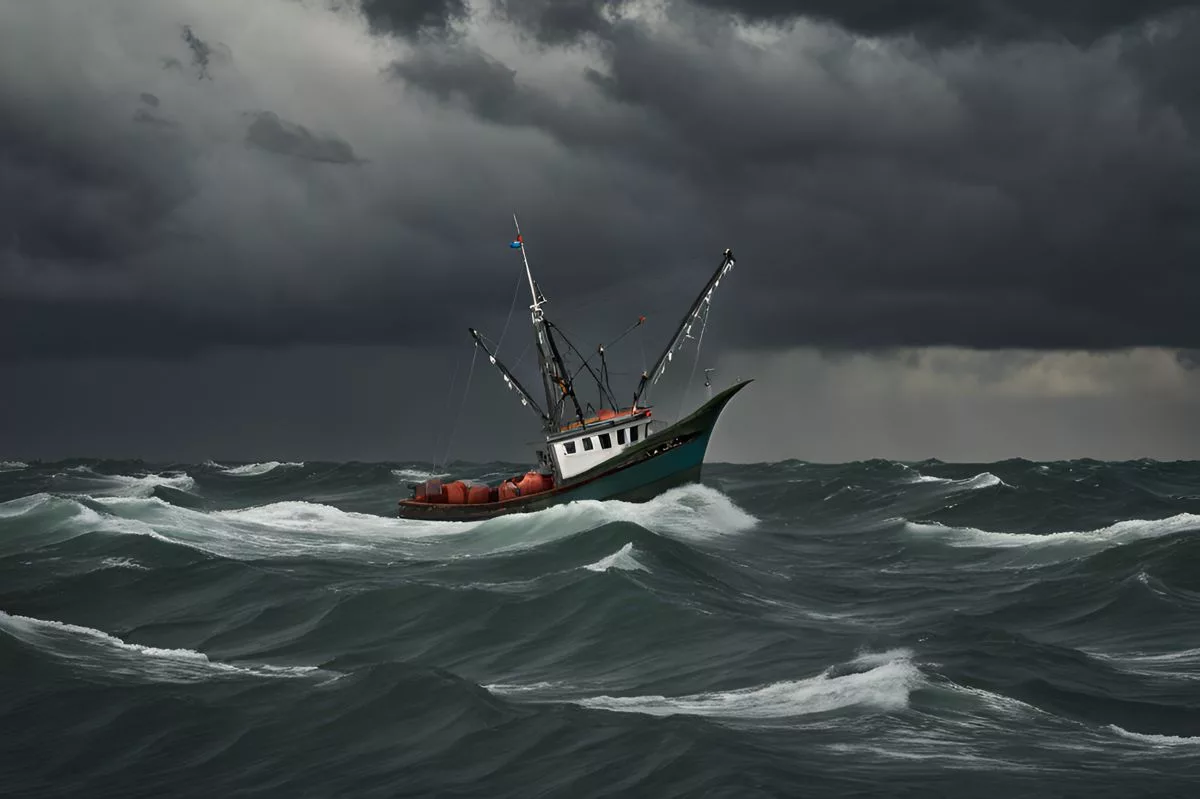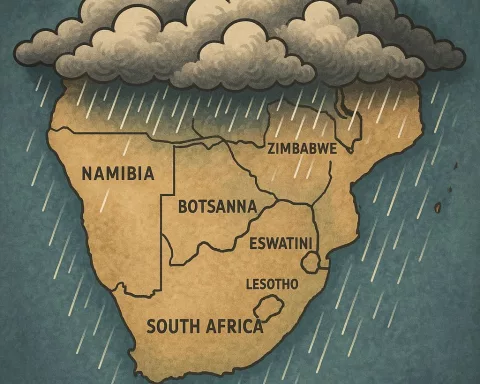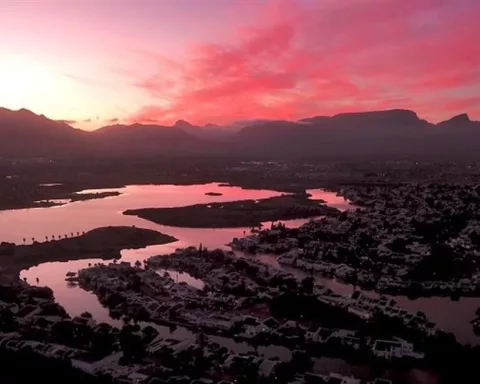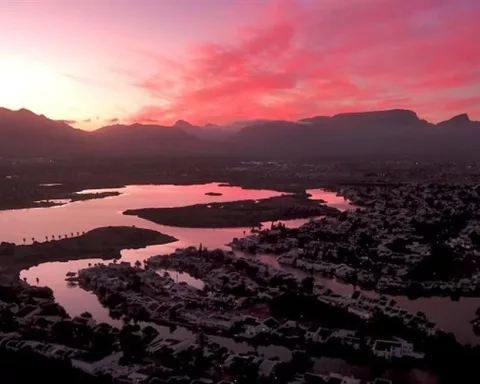South African small-scale fishermen are standing up against TotalEnergies’ offshore oil and gas exploration plans amid fears that they will ruin their livelihoods. Led by fisherman Sifiso Ntsunguzi, the community is concerned about the environmental impact of the proposed sites and the potential loss of fish, which is their main source of food and income. Environmental group Green Connection has sued the government over TotalEnergies’ environmental authorisation, and the company’s promises to reach net-zero carbon emissions by 2050 are being scrutinised. The conflict highlights the challenges of balancing economic development with environmental preservation.
What are the concerns of South African small-scale fishermen regarding TotalEnergies’ offshore operations?
Small-scale fishermen in South Africa, led by Sifiso Ntsunguzi, fear that TotalEnergies’ oil and gas exploration plans will destroy their source of income. Port St. Johns, where Ntsunguzi is from, has had past environmental tragedies, and the planned offshore sites between Cape Town and Cape Agulhas, west coast between Kleinsee and Saldanha Bay in the Deep Water Orange Basin, and off the South-West Coast between Mossel Bay and Cape St. Francis in the Eastern Cape have raised concerns. Environmental organization Green Connection has sued the government, and TotalEnergies’ promises to meet net-zero carbon emissions by 2050 are being questioned.
Fishermen’s Resistance Against Environmental Devastation
The tale of South Africa’s small-scale fishermen is marked by remarkable tenacity and defiance. They have recently come head-to-head with TotalEnergies, a French multinational energy behemoth, whose planned offshore operations instigate fears of environmental havoc and a bleak outlook for their fishing communities.
The resistance is significantly spearheaded by Sifiso Ntsunguzi, a small-scale fisherman from Port St. Johns in the Eastern Cape. Together with other fishermen from his community, he linked with Green Connection, an environmental non-governmental body, to voice opposition at TotalEnergies’ Annual General Meeting in Paris, France.
Ntsunguzi’s fears mirror that of numerous small-scale fishermen. He worries that oil and gas exploration by TotalEnergies will tear down their source of income. The thought of losing all their fish, their main source of food for their families, is voiced clearly by him.
A History of Environmental Tragedies in Port St. Johns
Port St. Johns has had its fair share of ecological calamities. Only a year back, severe flooding rendered many people without homes and destroyed the town’s infrastructure. The disaster left a lasting imprint on the community, and according to Ntsunguzi, it got worse due to climate change, projecting a somber view of potential future climate-related disasters.
The exploration plans of TotalEnergies are vast, focusing on offshore sites between Cape Town and Cape Agulhas (Block 5/6/7), west coast between Kleinsee and Saldanha Bay in the Deep Water Orange Basin, and off the South-West Coast between Mossel Bay and Cape St. Francis in the Eastern Cape. Additionally, it recently acquired stakes in Block 3B/4B near the Deep Water Orange Basin, extending its influence along the West Coast.
Despite its intensive operations, TotalEnergies has promised to meet the Paris Agreement’s objectives, vowing to strike net-zero carbon emissions by 2050. According to the company’s most recent climate report, it regards gas as a crucial transition fuel, specifically as a substitute for coal. TotalEnergies also contends that changing from coal to gas for electricity generation will cut CO2 emissions by half and reduce air pollution.
Green Connection’s Stand and Legal Actions
Conversely, Green Connection is of the view that TotalEnergies should completely disassociate from fossil fuels. Liziwe McDaid, the strategic lead of Green Connection, argues that the projects of the company put the survival of fishing communities at risk. She states, “Companies like TotalEnergies must be held accountable and cannot keep prioritising profits over people and the planet.”
Interestingly, Green Connection, along with environmental organization Natural Justice, has sued the Minister of Forestry, Fisheries, and the Environment and the Minister of Mineral Resources and Energy. The lawsuit relates to the environmental authorization given to TotalEnergies for exploration between Cape Town and Cape Agulhas.
In spite of multiple requests for comments, TotalEnergies remains unresponsive and has not yet addressed the issues raised by these fishermen and environmental activists. The tension between the company’s business strategy and the requirements of the communities directly impacted by its operations is tangible, and the battle of the small-scale fishermen of South Africa perseveres.
Observing this persistent conflict, it acts as a reminder of the intricate challenges posed by the energy transition and the delicate balance that must be maintained between economic advancement and environmental preservation, particularly as the world wrestles with the realities of climate change. This conflict underscores the critical role of small-scale fishermen in the struggle for a sustainable future and raises important questions about corporate responsibility and accountability in the face of environmental change.
1. What is the conflict between South African small-scale fishermen and TotalEnergies?
South African small-scale fishermen, led by Sifiso Ntsunguzi, are concerned about the environmental impact of TotalEnergies’ offshore oil and gas exploration plans, fearing that they will destroy their livelihoods. The proposed sites are located between Cape Town and Cape Agulhas, the west coast between Kleinsee and Saldanha Bay in the Deep Water Orange Basin, and off the South-West Coast between Mossel Bay and Cape St. Francis in the Eastern Cape.
2. What are the concerns of small-scale fishermen regarding TotalEnergies’ offshore operations?
Small-scale fishermen in South Africa fear that TotalEnergies’ oil and gas exploration plans will destroy their source of income, which is fishing. They are concerned about the environmental impact of the proposed sites, which could potentially lead to the loss of fish, their main source of food and income.
3. What is Green Connection’s involvement in the conflict between South African small-scale fishermen and TotalEnergies?
Green Connection, an environmental organization, has sued the government over TotalEnergies’ environmental authorization and has voiced opposition at the company’s Annual General Meeting in Paris, France. The organization believes that the projects of the company put the survival of fishing communities at risk, and companies like TotalEnergies must prioritize people and the planet over profits.
4. What is TotalEnergies’ promise regarding carbon emissions?
TotalEnergies has promised to reach net-zero carbon emissions by 2050, but this promise is being scrutinized by environmental activists and fishermen due to the company’s intensive operations and its continued involvement in fossil fuels.
5. What is the history of environmental tragedies in Port St. Johns?
Port St. Johns has had past environmental tragedies, including severe flooding that left many people without homes and destroyed the town’s infrastructure. Small-scale fishermen in this area fear that TotalEnergies’ oil and gas exploration plans will make it worse due to climate change, projecting a somber view of potential future climate-related disasters.
6. What legal actions have been taken against TotalEnergies?
Green Connection, along with environmental organization Natural Justice, has sued the Minister of Forestry, Fisheries, and the Environment and the Minister of Mineral Resources and Energy over the environmental authorization given to TotalEnergies for exploration between Cape Town and Cape Agulhas. Despite multiple requests for comments, TotalEnergies remains unresponsive to the issues raised by these fishermen and environmental activists.












